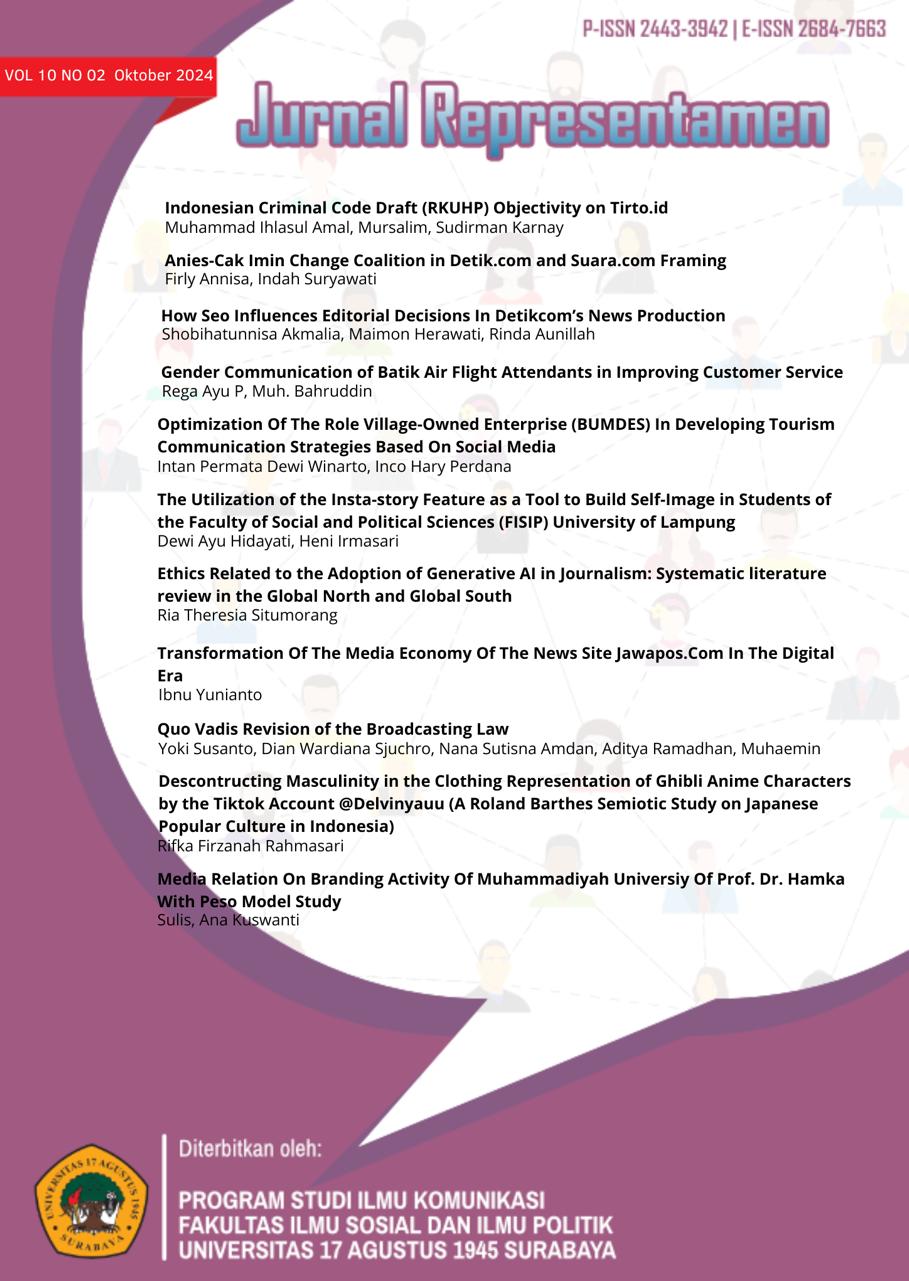Transformation Of The Media Economy Of The News Site Jawapos.Com In The Digital Era
DOI:
https://doi.org/10.30996/representamen.v10i02.11129Abstract
The development of information technology and communication technology causes disruption reducing the media's ability to earn revenue, retain audiences, and producing quality content that threatens its survival. The effects of disruption were also felt by print-based media conglomerates such as Jawa Pos in the form of a decline in revenue from circulation and advertising turnover. Business diversification into a digital business with a vertical expansion and vertical merger model was carried out to build the Jawa Pos Multimedia Group subsidiary as a digital conglomerate.
This research uses media ecology theory and Robert G. Picard's media economics perspective to explain how media companies maintain business continuity in the era of digitalization and explaining the results of the media economic transformation in the aspect of media sustainability.
Based on the research results, the practice of continuum convergence, journalistic convergence, and cross selling and co-promotion strategies were able to change the company managing the JawaPos.com news site from a loss-making condition in 2017 to a profit in the 2021 financial year. This research also found that the survival of the media is not only determined by the quality of journalistic products, but also success in market penetration, financial management, and effective and efficient human capital management.
Downloads
Downloads
Published
Issue
Section
License
Authors whose manuscript is published will approve the following provisions:
The right to publication of all journal material published on the jurnal representamen website is held by the editorial board with the author's knowledge (moral rights remain the property of the author).
The formal legal provisions for access to digital articles of this electronic journal are subject to the terms of the Creative Commons Attribution-ShareAlike (CC BY-SA) license, which means Jurnal Representamen reserves the right to store, modify the format, administer in database, maintain and publish articles without requesting permission from the Author as long as it keeps the Author's name as the owner of Copyright.
Printed and electronic published manuscripts are open access for educational, research and library purposes. In addition to these objectives, the editorial board shall not be liable for violations of copyright law.











